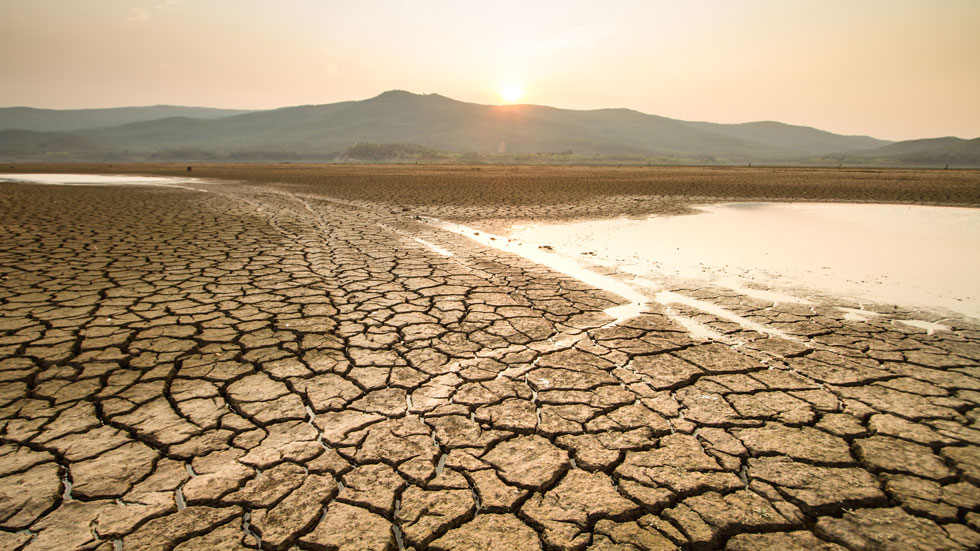Equilibrium/Sustainability — Presented by Southern Company — Nations plan to pump oil despite net zero promises
Today is Wednesday. Welcome to Equilibrium, a newsletter that tracks the growing global battle over the future of sustainability. Subscribe here: digital-staging.thehill.com/newsletter-signup.
World governments are planning to produce more oil in 2030 than they do now — a trend that a new United Nations report described as “dangerously out of sync” with global climate ambitions.
A tally of the world’s existing production targets shows that, despite rhetoric around achieving net-zero, global coal and petroleum companies intend to produce twice the maximum amount of fossil fuels that would enable warming to stay below 1.5 degrees Celsius (2.7 degrees Fahrenheit).
Breaching that threshold, determined at the 2015 Paris Climate Agreement, could mark a point of no return for serious climate upheaval, the scientific community and officials around the world have agreed. To avert such a crisis, the report indicated that “global fossil fuel production must start declining immediately and steeply.”
But that’s not an easy task — even as the costs of not doing so are becoming clearer. Today we’ll look at a plea from some of America’s biggest corporations to include stricter emissions cuts in the reconciliation bill — and why it will likely go unanswered. Then we’ll turn to one consequence of those emissions: California’s drought, which has now reached emergency proportions statewide.
For Equilibrium, we are Saul Elbein and Sharon Udasin. Please send tips or comments to Saul at selbein@digital-staging.thehill.com or Sharon at sudasin@digital-staging.thehill.com. Follow us on Twitter: @saul_elbein and @sharonudasin.
Let’s get to it.
Corporations urge Dems to pursue tighter climate standards

A group of 17 major U.S. corporations like IKEA U.S., Shell and PepsiCo sent a letter on Tuesday to leading Congressional Democrats requesting that they pass the “robust climate provisions in the Build Back Better Act” and include them in final legislation.
One problem: it’s precisely these provisions that Democrats are likely cutting.
A plea for help: In their letter addressed to Senate Majority Leader Charles Schumer (D-N.Y.) and House Speaker Nancy Pelosi (D-Calif.) the companies said, in essence, that they can’t address the climate crisis alone.
“Both private-sector and government action are necessary for the United States to achieve net zero greenhouse gas emissions,” the letter said.
The companies also stressed the urgency of limiting “the catastrophic impacts of climate change, which include disruptions to supply chains, damage to public and private infrastructure, workforce displacement and price volatility to consumers.”
In the letter, the companies repeatedly referenced changes they are making to “reduce emissions and embrace climate-forward business strategies” — efforts they said would be supported by the climate-focused investments in the bill, helping them remain “globally competitive.”
Remaining competitive on the world stage: In July, the European Union passed a carbon border tax, which would charge tariffs to high-polluting countries and industries selling goods into the zone, Reuters reported.
This was just one of 64 carbon pricing schemes around the world from China to California, according to Reuters.
Considered as a whole, they signal a clear threat: that a business-as-usual approach from the U.S. government risks crippling the ability of American multinational corporations to compete in a global market increasingly concerned with the risks — and opportunities — of climate change.
A MESSAGE FROM SOUTHERN COMPANY
At Southern Company, we achieved our interim net zero energy goal ten years early. Today, we continue our work toward a net zero future.
LOOK AT THE SUBTEXT
That specter is part of what has brought us to the point — unthinkable even a decade ago — in which large U.S. agriculture, wood-product and oil companies that long fought against environmental laws are now asking leading Democrats to pass them.
But that clean energy plan is on the chopping block: After months of opposition to a $3.5 trillion spending plan by centrist senators Joe Manchin (D-W.Va.) and Krysten Sinema (D-Ariz.), progressive Democrats accepted the loss of key climate and childcare benefits in the original package, The Hill reported.
Among the cuts is the $150 billion Clean Electricity Performance Program, which would have required utility companies to use steadily rising amounts of renewable energy, while rewarding firms that met their goals and fining those that didn’t, MarketWatch reported.
But Manchin opposed that program. In a statement to The New York Times, Sen. Manchin’s spokesperson said that he “has clearly expressed his concerns about using taxpayer dollars to pay private companies to do things they’re already doing.”
The background: In the past decade, the U.S. share of energy from fossil fuels has fallen from 69 to 60 percent, according to market data firm Statista. But that drop is far less than the cuts the Biden administration has been pushing for and that the U.N. has signalled are necessary.
Meanwhile, the world’s coal, gas and oil companies plan to keep producing enough fossil fuels through 2030 to crash their governments’ climate goals — and keep disincentivizing strained grids to switch to renewables.
Last words: If nothing changes, risks are rising that U.S. negotiators could show up at the United Nations Climate Conference in Glasgow (COP26) with little to show their partners, Sen. Sheldon Whitehouse (D-R.I.) told The Guardian.
“It would be bad for U.S. leadership, bad for the talks and disastrous for the climate. Just disastrous,” Whitehouse said.
Newsom urges conservation amid California drought

Gov. Gavin Newsom (D) issued a proclamation on Tuesday evening expanding California’s drought emergency to include the entire state, following the second driest year ever recorded, as covered by The Hill.
The governor’s proclamation now includes eight counties that had previously been exempt from the state of emergency: Imperial, Los Angeles, Orange, Riverside, San Diego, San Francisco and Ventura. With the possibility of a third consecutive year of drought on the horizon, the extended proclamation now requires local water suppliers to enact water shortage contingency plans that reflect local conditions, according to the governor’s office.
“As the western U.S. faces a potential third year of drought, it’s critical that Californians across the state redouble our efforts to save water in every way possible,” Newsom said in a statement.
But despite the emergency, the governor stopped short of requiring water conservation and is instead simply urging residents to save water.
What does this mean in practice? The proclamation empowers the State Water Resources Control Board to prohibit wasteful water practices, such as the use of potable water to clean sidewalks and driveways, a news release from his office explained.
Meanwhile, the Governor’s Office of Emergency Services will now be able to provide funding to support emergency response teams and deliver water for public health and safety under the California Disaster Assistance Act, according to the news release.
Governor asks residents to conserve: Newsom also urged residents to bolster their water conservation efforts. That follows up on a July executive order in which he called upon Californians to reduce water use by 15 percent compared to 2020.
But by August, the state had only reduced urban water use by 5 percent compared to the previous year, according to the Water Board.
“We’re not surprised that the goal has yet to be achieved since it takes time for the messaging to reach a critical mass and for people to put conservation actions in to practice,” Marielle Pinheiro, a data specialist with the Water Board, said at a board meeting on Tuesday, according to CBS San Francisco.
A MESSAGE FROM SOUTHERN COMPANY
At Southern Company, we achieved our interim net zero energy goal ten years early. Today, we continue our work toward a net zero future.
‘WE ARE FURTHER BEHIND THAN WE SHOULD BE’
Breaking records, the bad way: Tuesday’s proclamation follows California’s second driest “water year” in history, rivaled only by 1924. The U.S. Geological Survey defines the “water year” as the 12-month period from Oct. 1 through Sept. 30.
August 2021 also marked the driest and hottest August on record since reporting began, the governor’s office said. Meanwhile, the U.S. Drought Monitor indicated that 100 percent of California is experiencing drought on some level, while nearly half the state is encountering “exceptional” drought, the San Francisco Chronicle reported.
“The state is moving to protect our communities, businesses and ecosystems from the immediate impacts of the drought emergency while building long-term water resilience to help the state meet the challenge of climate change impacts making droughts more common and more severe,” Newsom said.
Too little, too late? Some water experts fear that voluntary calls for conservation, rather than conservation mandates, will prove insufficient, Cal Matters reported.
“It takes time to ramp up, and because of the delay in asking Californians to save water this spring, we are further behind than we should be,” Heather Cooley, director of research at the Pacific Institute, told Cal Matters.
Newsha Ajami, director of Urban Water Policy at Stanford University, likewise said she was surprised that Newsom didn’t declare a statewide water conservation mandate on Tuesday, according to Cal Matters.
Last words: “We really need to reduce per capita water use significantly in some areas of the state,” Ajami told Cal Matters. “If this drought lingers longer and we end up having a few more dry years we are going to have a lot more communities experiencing water scarcity and water access issues.”
World Wednesday

One homebound Russian president, deadly floods and epochal droughts.
Putin declines to attend G-20, COP26 meetings in person
- Russian President Vladimir Putin said that he would not attend the United Nations Climate Change Conference (COP26) in Glasgow later this month — although he is considering delivering a speech by video link, the Kremlin said on Wednesday, according to The New York Times.
- Russia is the fourth-largest emitter of greenhouse gases worldwide, but has been criticized for dragging its feet on policies to reduce emissions, while remaining a major exporter of oil, coal and natural gas, the Times reported.
- The day before, Putin also said that he would not attend next week’s Group of 20 summit in Rome and instead would join that meeting as well by video link, Bloomberg reported.
- Putin told Italian Prime Minister Mario Draghi that the pandemic was getting worse in Russia and that it would be more appropriate for him to stay home, rather than require a significant number of officials to travel with him to Rome, according to Bloomberg.
Dozens drown in India and Nepal amid prolonged monsoon weather
- Cyclonic weather conditions in the Bay of Bengal sent heavy winds and rain across the Indian subcontinent — killing dozens of people across India and Nepal, while washing away bridges and ravaging crops, The New York Times reported.
- The death toll rose on Wednesday as landslides and floods destroyed homes and left thousands of tourists stranded during Hinduism’s festive season that aligns with the fall harvest, according to the Times.
- “Historically October is the start of post-monsoon,” R.K. Jenamani, from India’s meteorological department, told the Times. “But this time what happened was that western disturbances were very, very intense.”
- The northern Indian state of Uttarakhand is experiencing its heaviest rainfall since 1897 and has lost at least 46 people as a result, according to the Times.
- Meanwhile, at least 50 people were killed in inundated Nepali villages over the past week, as hundreds of houses were swept away and a regional airport was submerged, the Times reported.
Iraq faces worst drought in almost a millennium
- The Iraqi agriculture ministry announced Sunday that it “would reduce its 2021-2022 winter crop planting area by 50 percent due to a water shortage,” Reuters reported.
- “We talk far too little about the fact that the Middle East is going through its worst drought in 900 years,” tweeted Ali Al-Saffar, of the International Energy Agency.
- RIsing temperatures could lead to an 8-to-20 times rise in risk of heat-driven death in the region, according to one study he cited — threatening nothing less than human habitation in the region, according to another.
- “This is why looking at the issue of climate exclusively through the prism of oil and gas markets is so deficient,” Al Saffar tweeted. “It’s in the interest of all, particularly the [oil and gas] exporters, that robust action is taken to limit the temperature increase. They have skin [in] the game.”
Please visit The Hill’s sustainability section online for the web version of this newsletter and more stories. We’ll see you on Thursday.
{mosads}
Copyright 2024 Nexstar Media Inc. All rights reserved. This material may not be published, broadcast, rewritten, or redistributed..














